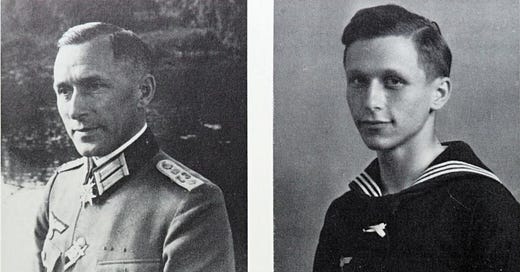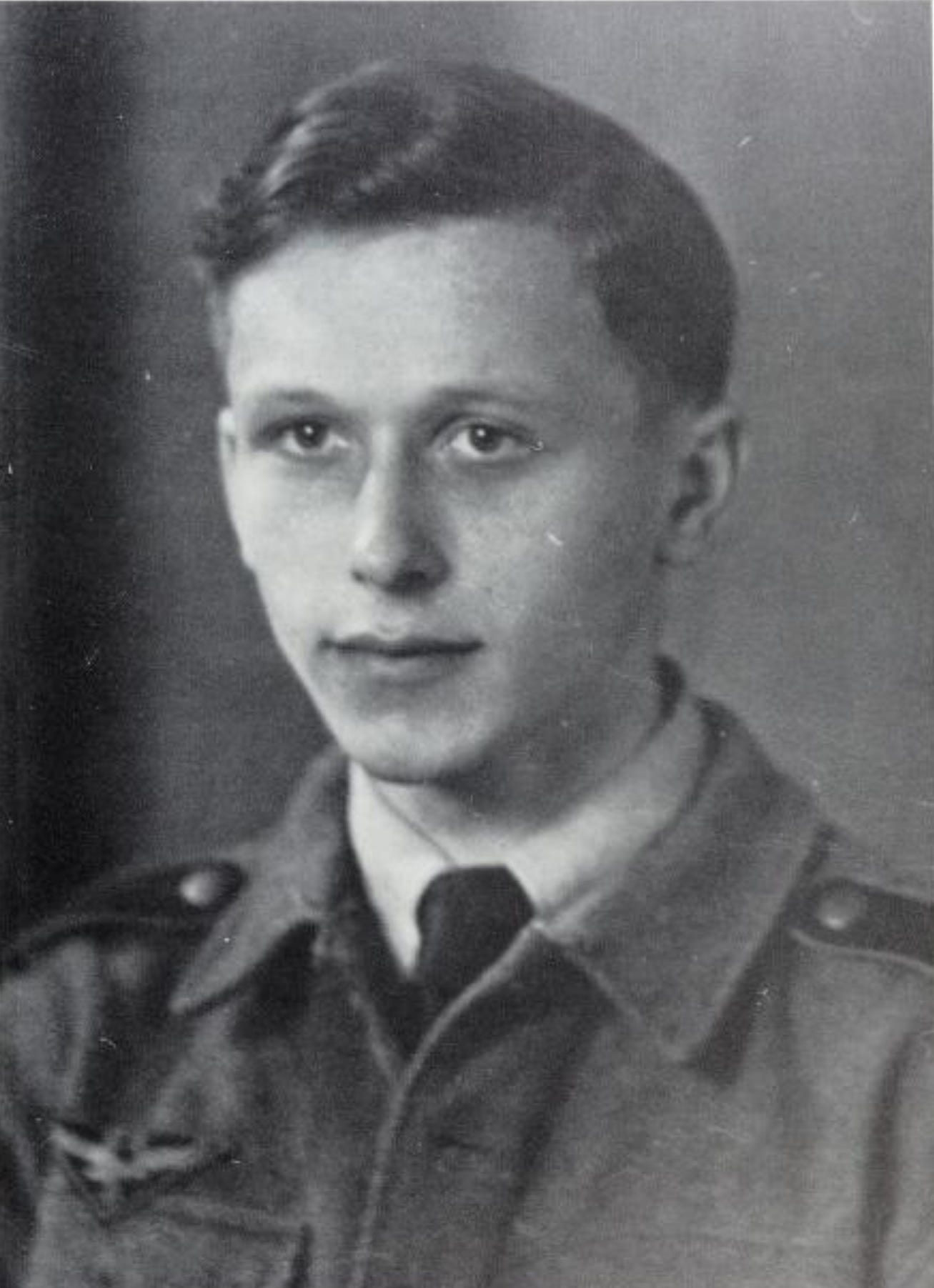These notes are an addition to yesterday’s letters. Original post here:
juenger-juenger-blog.tumblr.com
The source for the journal entries:
Ernst Jünger: Leben und Werk in Bildern und Texten
In 1944, when Jünger’s eldest son Ernst “Ernstel” Jünger served as a HJ-Marinehelfer, a naval variant of the Flakhelfer, he was arrested for having formed a resistance group. In reality he had simply engaged in “subversive conversations” with his comrades at the Wilhelmshaven Naval Academy. The boys were of the opinion that the war was lost and needlessly dragged out to prolong Hitler’s regime, a man they detested - except for one comrade, who denounced the group of friends.
Ernstel had said he would gladly walk 100 kilometres on foot if it would allow him to see Hitler being hanged or that Hitler needed to be hanged and he would gladly be the one to pull the rope. Words of this nature were often spoken behind closed doors.
Due to Ernst Jünger’s personal pleas to spare the boys and their young age the naval military court showed mercy, Ernstel and the other cadets weren’t sentenced to death, a sentence given by the Volksgerichtshof (people’s court, a special court that operated outside the constitutional frame of law) even for less serious statements. Ernstel was instead imprisoned and according to some sources the punishment was transformed into combat duty in September 1944, Ernst and Gretha Jünger’s private correspondence however implies he was released and then volunteered. Ernstel served as a Panzergrenadier, supposedly in the Waffen-SS. On 29 November 1944 he was killed in action.
The following excerpts are from Ernst Jünger’s diary about the death of his son:
Kirchhorst, 12 January 1945
Ernstel is dead, fallen, my good child, already dead since the 29th November of the last year! Yesterday, on the 11th January 1945, in the evening, shortly after seven the message arrived.
Kirchhorst, 13 January 1945
The good boy met his death on the 29th November 1944; he was eighteen years old. He died from a headshot while on reconnaissance patrol in the marble mountains of Carrara in Central Italy and was, as his comrades reported, instantly dead. They could not take him along, but shortly after brought him back with an armored car. He found his final resting place on the graveyard of Turigliano near Carrara.
Kirchhorst, 16 January 1945
The death of the son adds one of those dates, one of the crucial and turning points into my life. The things, the thoughts, the actions before and after differ.
The circumstances of Ernstel’s death, an instantly fatal headshot during reconnaissance patrol - on marble mountains of all places - left Ernst Jünger wondering for a long time if Ernstel had been executed. He also blamed himself for having talked openly against the Nazis in front of the boy, who clearly inherited his defiant character from his father.










Has anyone ever found a record or gravestone in Italy? I looked up the cemetery and the Wikipedia says the German soldiers bodies were sent back to Germany.